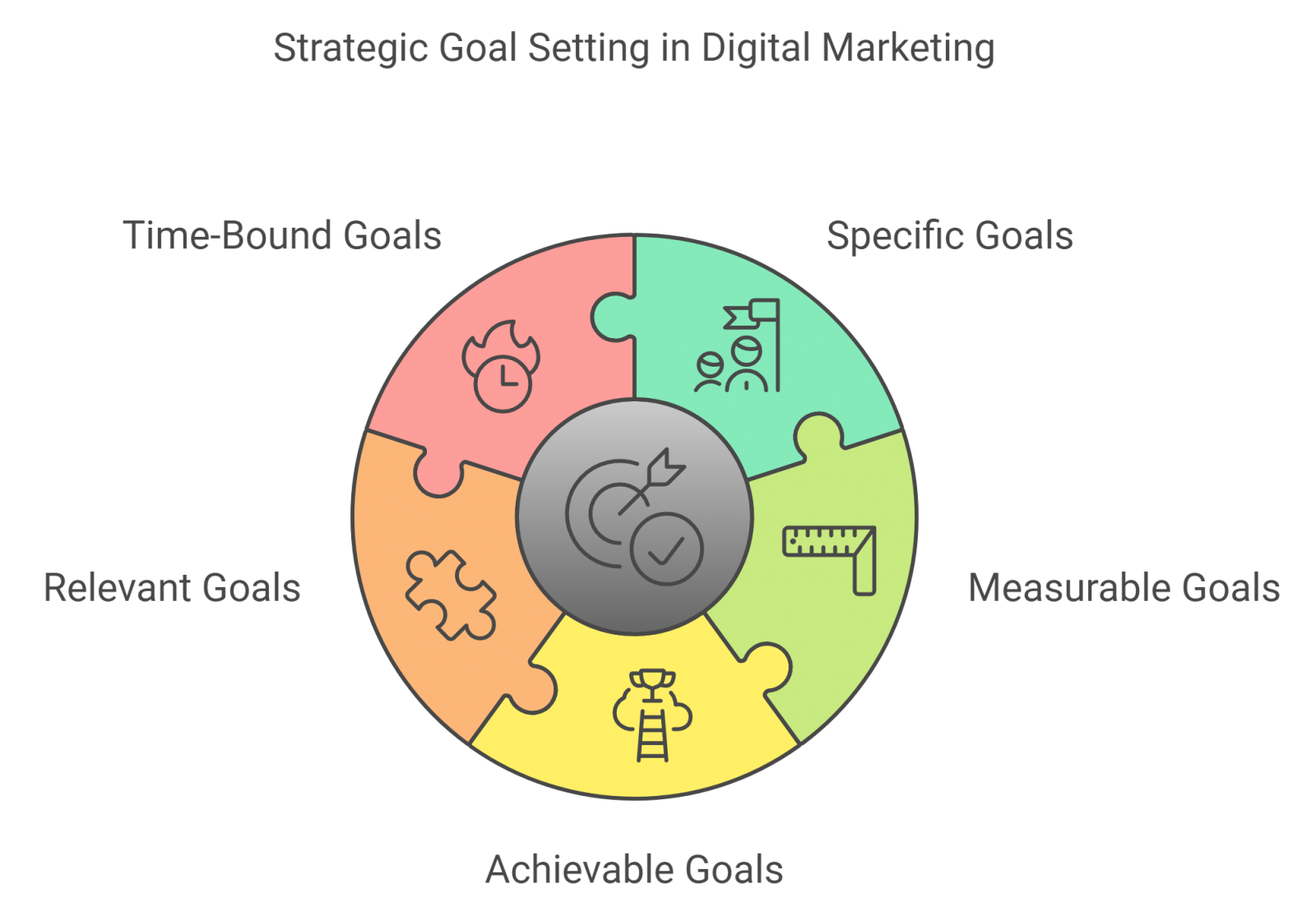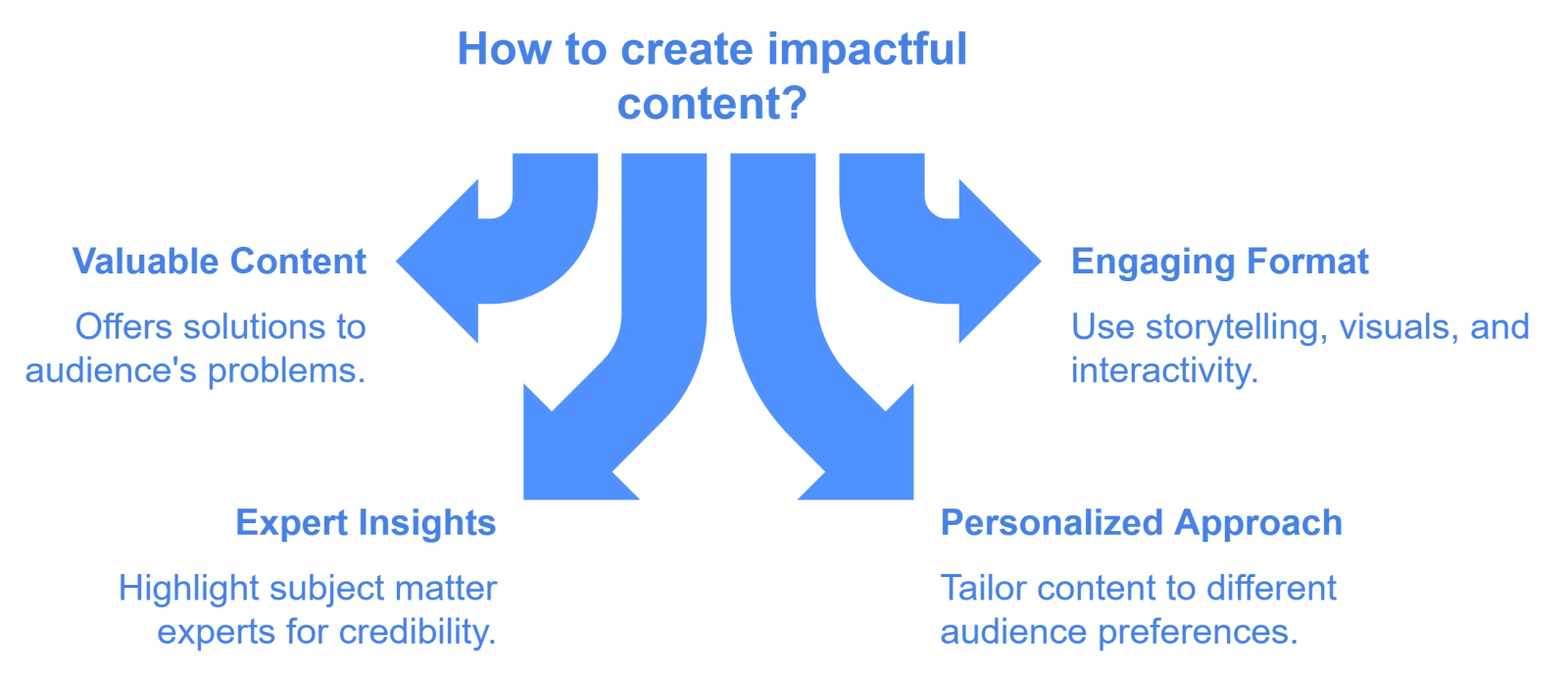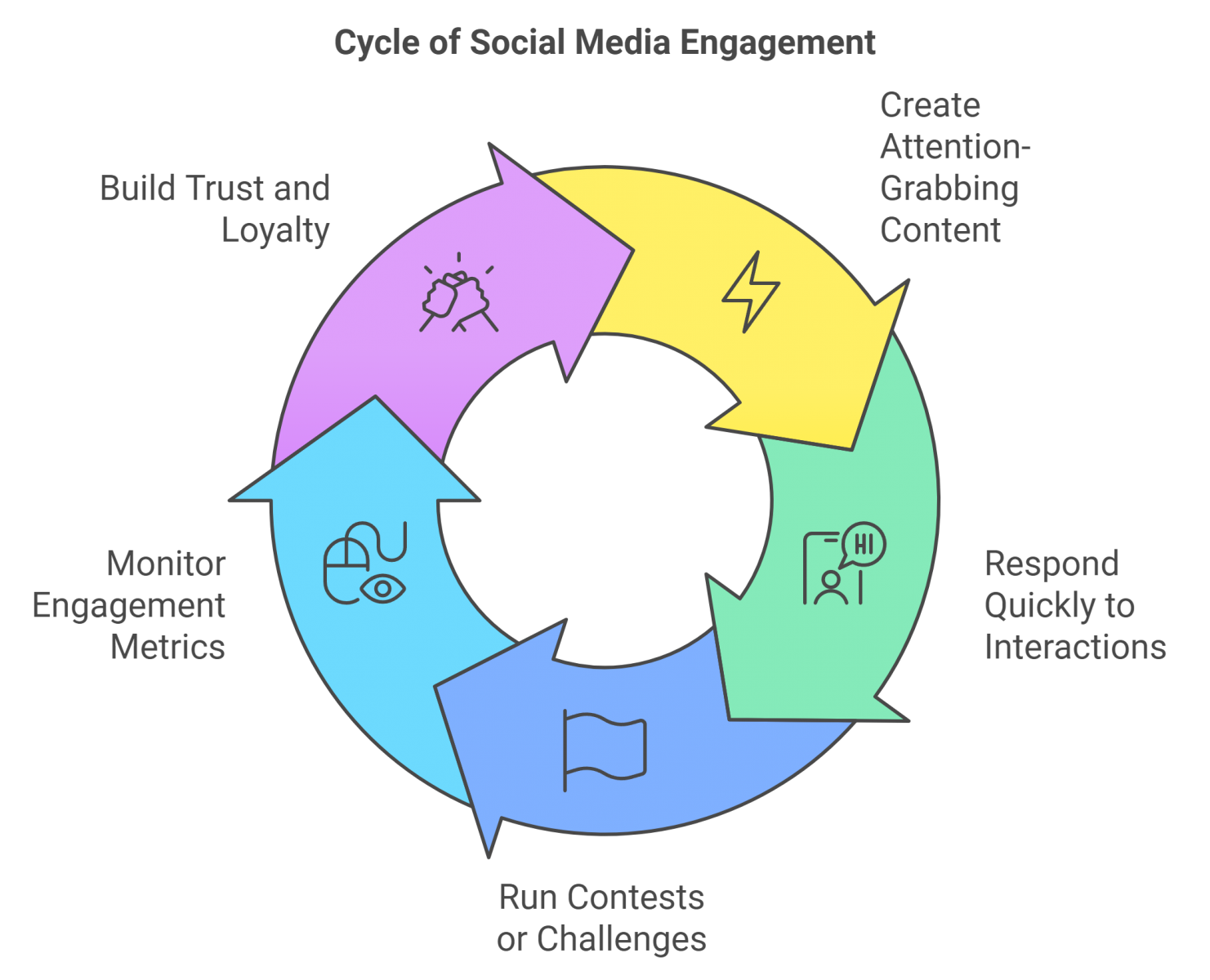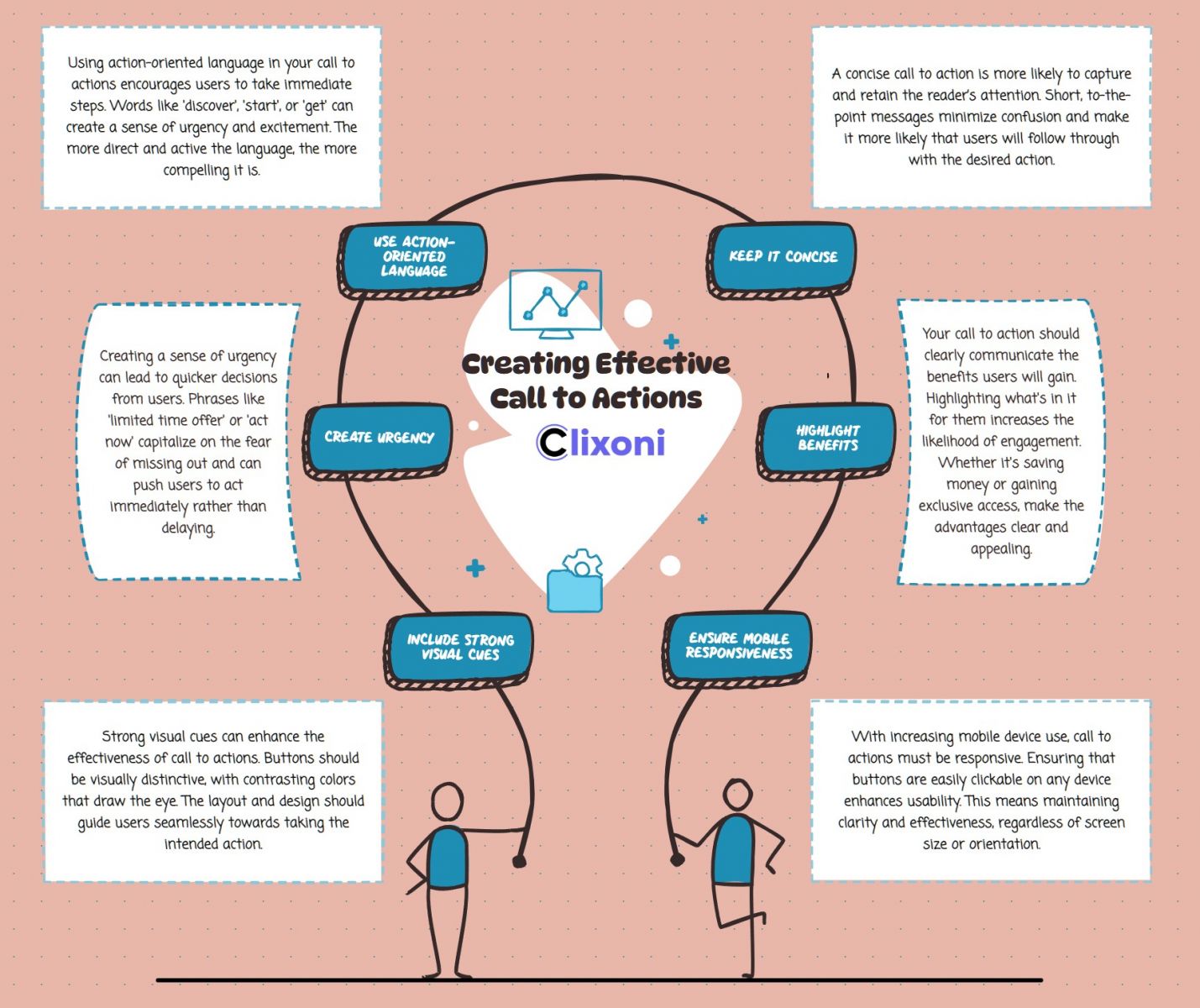Small Business Marketing Mastery Guide
October 10th, 2024

Have you ever noticed how a small local bakery attracted more customers by using targeted social media campaigns?
Just picture having a detailed guide that shows you how to do the same or even better in your own business ventures. This guide covers important topics like knowing your audience, setting specific goals, and selecting the right digital marketing platforms for your business.
Keep reading to find out how mastering these key strategies can drive your business towards sustainable growth and success in today's competitive market.
Understanding Target Audiences
If you want to nail small business marketing, start by getting to know your target audiences really well. Knowing who you're trying to reach is crucial for running successful campaigns. Your marketing game plan relies on creating a buyer persona that sums up the important details about your potential customers—like their age, interests, and how they behave online. This persona is like your secret weapon, helping you tailor your marketing strategies to match what your customers want and need.
You can gather valuable insights about your target audience by running surveys, polls, and checking out what your competitors are up to. Understanding what makes your audience tick and what they care about is key to creating content that resonates with them. And when you know who you're talking to, you can make sure your message hits home with the right people.
Don't forget to look at how your target audience behaves online. This will help you figure out which digital marketing channels will work best for reaching them. By paying attention to these details, you can fine-tune your marketing tactics and make sure your message gets to the right people in the most effective way possible.
Setting Clear Goals
When you're planning your digital marketing, it's crucial to set clear goals to guide your efforts and make the most impact. For your content marketing strategy, your goals should be specific, measurable, achievable, relevant, and time-bound (SMART). By linking these goals with your business priorities, you can focus strategically and achieve results. Having a timeline for reaching your goals is essential for monitoring progress and staying on track.

Setting effective goals not only gives you direction but also lets you accurately measure the impact of your marketing strategies. It's through clear goal setting that businesses can assess the success of their marketing efforts and make informed decisions to improve their strategy for better results. Ensure your goals are well-defined, actionable, and align with your overall marketing plan to drive your business towards growth and success.
Choosing Digital Marketing Channels
When you're choosing your digital marketing channels, think about how your target audience likes to spend time online. You can use tools like Google Analytics to see how each channel is performing and make changes to your strategy as needed.
Concentrate on channels that match up with what your audience likes and how they act online. This way, you can bring in valuable traffic and reach your business goals more effectively.
Target Audience Selection
When figuring out the best digital marketing channels for your small business, focus on ones that your target audience prefers and uses the most. This means prioritizing platforms where they're active and engaged.
Use tools like Google Analytics to keep an eye on how they behave on these chosen channels. This way, you can adjust your strategies as needed. By concentrating on traffic sources that bring in high-value visitors who are likely to become customers, you can get the most out of your marketing efforts.
Make sure the channels you pick resonate with your audience so that your content is well-received and drives the results you want. Get to know your target audience and their online habits to create more effective marketing campaigns.
Content Strategy Planning
If you want to boost your small business's online presence and engage with your audience effectively, start by planning out your content strategy.
Focus on the digital marketing channels that align with your goals and target audience. Choose platforms where your audience is most active to increase engagement and conversions. Use tools like Google Analytics to monitor performance and improve your chosen channels for better outcomes.
Concentrate on attracting valuable traffic sources to generate quality leads and boost conversion rates. Select digital marketing channels that match your audience's preferences and behaviors for maximum impact.
Crafting Compelling Content
Crafting engaging content that speaks to your audience's struggles and resonates with their desires is key. To make an impact, focus on creating valuable content that offers solutions to their problems. Blog posts are a great way to share this content as they're easy to read and share. By adding storytelling, visuals, and interactive elements, you can boost engagement and reach a wider audience.
Highlighting subject matter experts (SME) as trusted problem-solvers in your content can help build credibility and trust with your audience. Tailoring your content to suit different audience preferences ensures maximum impact and relevance. Remember, creating top-notch content that meets your audience's needs is crucial for successful marketing efforts. By consistently delivering valuable and personalized content, you can cultivate a devoted following and drive business growth.

SEO Strategies
If you want to excel in marketing for your small business, you need to pay attention to SEO strategies that can boost your online presence.
This involves researching relevant keywords and tweaking on-page elements to enhance your search engine rankings.
Another important aspect is creating strong backlinks and seamlessly incorporating keywords into your content to attract potential customers to your website.
Keyword Research Tips
Want to improve your website's visibility on search engines and attract the right audience? You need to dive into effective keyword research strategies.
It's crucial to dig deep and find the best keywords to optimize your site for better search engine rankings and to drive more organic traffic. By pinpointing and using relevant keywords that relate to your business niche, you can target specific audience groups effectively and increase your online presence.
Plus, consider incorporating long-tail keywords to attract more qualified leads and improve your conversion rates. Don't forget to keep your keyword strategies up-to-date based on trends and analytics to stay ahead in the competitive world of search engine optimization.
On-Page Optimization Techniques
If you want your website to perform better and show up more in search engine results, you need to use some smart on-page optimization techniques. Here are a few strategies to help your small business improve its on-page optimization and get better search engine rankings:
First off, make sure to tweak your title tags, meta descriptions, and headers to make them more visible. Use keywords that are relevant to your content in a natural way to boost your SEO game.
Don't forget to give your images descriptive filenames and alt text to make them more effective for SEO. You should also include internal links to make it easier for visitors to navigate your site and have a better experience.
And lastly, use structured data markup and make sure your site loads quickly to really succeed with SEO.
Backlink Building Strategies
If you want your small business to rank higher in search engines and get more online visibility, it's important to focus on building quality backlinks. In the world of digital marketing, having good backlinks can really help show your audience that you're trustworthy and relevant.
When you get links from respected sites, it tells search engines that your website is valuable. To connect with your target audience effectively, think about using guest posting, fixing broken links, and teaming up with influencers to get high-quality backlinks. These strategies not only improve your SEO but also bring more organic traffic to your site.
Social Media Engagement
To become a master at marketing your small business effectively, it's crucial to interact with your audience on social media. This means more than just posting content; it's about having meaningful conversations that connect with your audience.

Here are some tips to help you boost your social media engagement:
First off, make sure to create content that grabs attention, encourages discussions, and motivates your followers to take action. You want to spark interest and get people talking.
Next, show your audience that you're there for them by responding quickly to their comments and messages. This demonstrates that you value their input and care about what they've to say.
Consider running contests or challenges that encourage users to create and share their own content related to your brand. This not only increases engagement but also builds a sense of community around your business.
Keep an eye on important metrics like likes, shares, and comments to understand which content resonates the most with your audience. This data can help you fine-tune your social media strategy for better results.
Lastly, by engaging genuinely with your audience, you can establish trust and loyalty towards your brand. People are more likely to support a business they feel connected to, so focus on building those meaningful relationships through social media interactions.
Email Marketing Campaigns
When you want to make your email marketing campaigns as effective as possible, it's important to pay attention to your subject lines and call-to-action.
Personalizing your subject lines can really help increase the number of people who open your emails, which means more engagement with your audience.
Using good call-to-action strategies can help turn that engagement into conversions, giving your small business a better return on investment.
Subject Line Tips
To make your email marketing campaign more effective, create subject lines that grab your audience's attention and encourage engagement. Here are some tips to help boost your email open rates:
- Make your subject lines more personalized to increase relevance.
- Incorporate emojis, numbers, and a sense of urgency to attract attention.
- Try out different variations to see what works best.
- Keep your subject lines short and direct.
- Test your subject lines to ensure they're optimized for maximum impact.
Call-to-Action Strategies
Improve the impact of your email campaign by mastering smart call-to-action strategies that boost engagement and conversions. When you include a strong call-to-action (CTA) in your emails, you encourage recipients to take the desired actions.
Use language that prompts action and clearly guides your audience on the next steps, whether it's making a purchase, signing up for a webinar, or downloading a resource. Place your CTA prominently in the email and make it visually appealing to grab attention.
Testing different CTAs can help you figure out which ones work best for your audience, resulting in higher click-through rates and conversions. By using effective call-to-action strategies in your email marketing, you can optimize outcomes and elevate the performance of your small business marketing efforts.

Data Analytics and Measurement
Want to know how data analytics can help your small business with marketing? Well, it's all about using digital tools and measurements to get insights that can supercharge your marketing efforts. Here are five ways data analytics can make a big difference for your business:
- Keep an Eye on Campaigns: Data analytics lets you track and evaluate how well your digital marketing campaigns are doing in real-time.
- Get Useful Info: Tools like Google Analytics give you important data on things like website traffic, user behavior, and conversion rates.
- Fine-Tune Your Metrics: Look at key indicators such as bounce rates, conversion rates, and return on investment to tweak your strategies for better results.
- Make Smart Choices: Use data analysis to make informed marketing decisions that improve targeting and engagement.
- Boost Your Performance: When small businesses understand and use data effectively, they can really up their marketing game.
Budgeting and Resource Allocation
When you're running a small business, it's super important to be smart about where you put your money and how you allocate your resources. Making sure that every cent you spend is helping you reach your business goals is key.
By focusing on the areas that give you the best return on investment and appeal to your target audience, you can fine-tune your marketing strategies. Small businesses do best when they concentrate on the channels that bring in the most engagement and actual sales, especially when resources are tight.
By budgeting properly, you can make sure that your marketing efforts are in line with your overall business objectives, creating a unified approach to growing your business. Smart resource allocation can boost the impact of your marketing campaigns and give you a better return on your investment.
By putting your money into the right places, you can expand your reach and influence within your specific market. It's important to make informed choices when deciding where to invest, looking at the data to see where your money will make the biggest impact.
Stay flexible in your approach, adjusting your budget and resource allocation as needed to keep growing and succeeding in your marketing efforts.
Adapting Marketing Strategy
To keep up with the ever-changing marketing landscape, it's important to align your digital efforts with current market trends. This means understanding your target audience and the media they use. Here are five things to keep in mind:
- Know Your Customers: Customize your strategies based on what your customers like to make sure you stay relevant.
- Use Performance Data: Be flexible and adjust your tactics based on how well they're performing to get the best results.
- Connect with Your Audience: Adapting your approach helps you connect better with your target audience.
- Watch Your Competition: Keep an eye on what your competitors are doing and any changes in the industry to stay ahead.
- Achieve Sustainable Growth: By adapting your strategies, you can ensure steady growth and stay competitive.
Frequently Asked Questions
What Is a Marketing Mastery?
If you want to master marketing, start by focusing on mastering techniques and understanding the basics. Dive deep into strategies that actually work. Simplify those tricky marketing ideas, so you can confidently steer your brand towards growth and success.
How Do I Become a Small Business Marketer?
If you want to be a small business marketer, start by honing your marketing skills through practical experience, taking courses, and networking with professionals in the field. Look into job openings across different industries that value creativity and making decisions based on data. Keep yourself informed about the latest trends and tools that can help you succeed in your marketing efforts.
What Do Small Business Owners Need to Know About Marketing?
If you want to do well in marketing, you need to understand how crucial it is to make people recognize your brand and to get them engaged. You have to come up with plans that will help you reach your target audience efficiently. Set specific goals, pick the right platforms, craft interesting content, and use SEO strategies to boost your chances of success.
What Is the Marketing Strategy for Small Business?
To make the most of what you have, focus on using social media to reach a lot of people and local advertising to connect with your community. Keep up with what's popular to get the best outcomes. Aim to increase sales, get more people to know about your brand, and make customers want to keep coming back, all while being mindful of costs.
Conclusion
Now that you have the tools and strategies we've talked about in this guide, it's time to put them into action and see your small business thrive.
Remember, marketing success is more like a marathon than a sprint. It's all about staying consistent, adapting to changes, and always putting your audience first.
The journey to mastering marketing might have its challenges, but the rewards will definitely make it all worth it.
Just keep moving forward, and success will come your way.